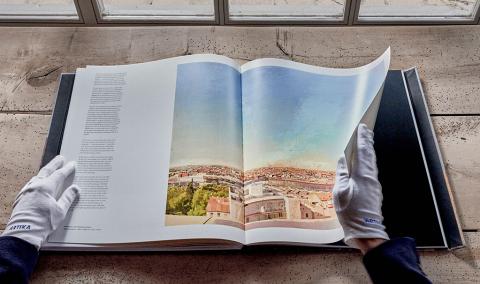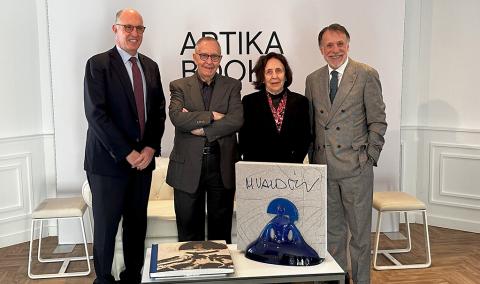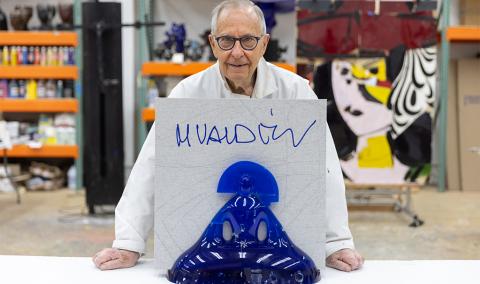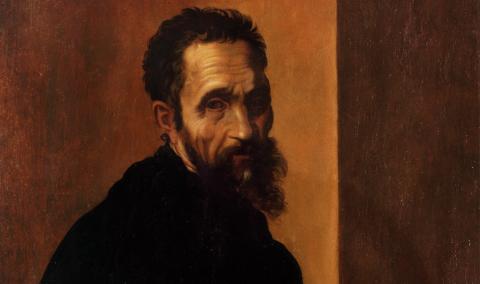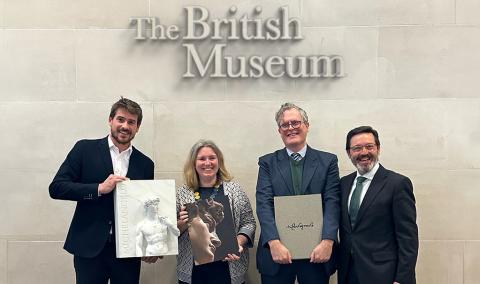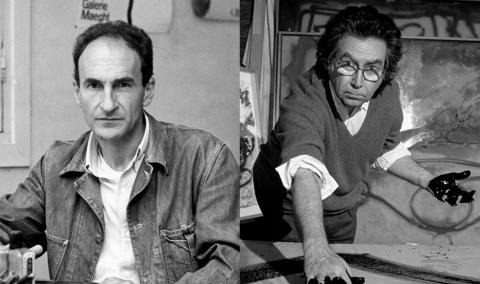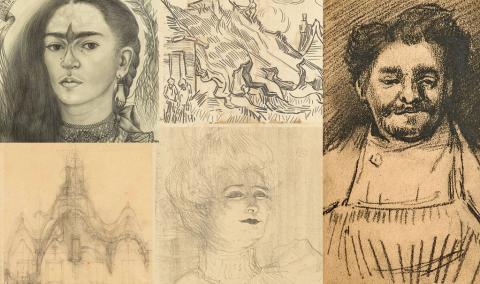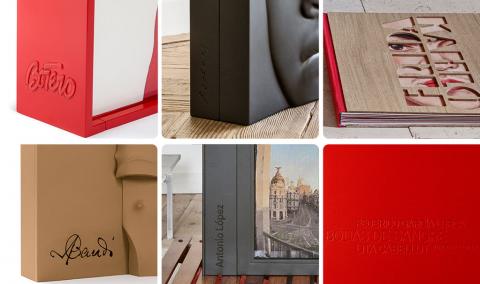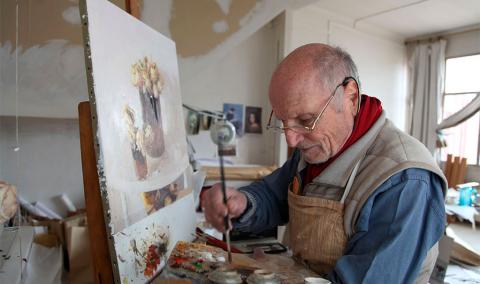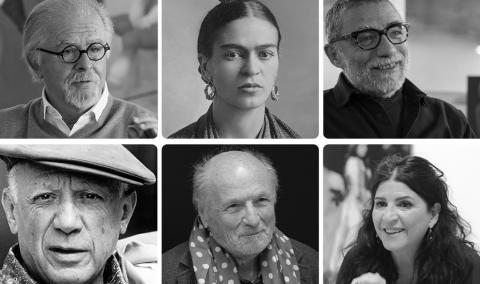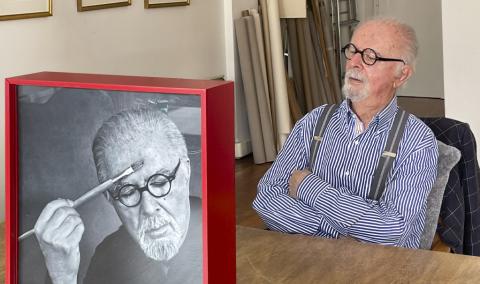NEWS DETAIL
The most personal series by Antoni Tàpies
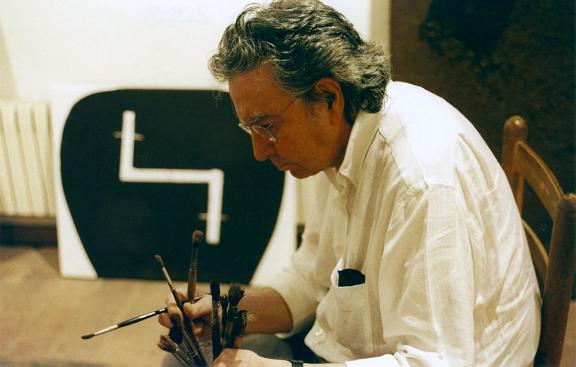
This December 13th marks the 98th anniversary of the birth of Antoni Tàpies (1923 - 2012). At ARTIKA we would like to pay tribute to the artist by remembering one of his most representative creations: the Sèrie Negre. What were his points of reference when conceiving this series? Why did he choose the colour black?
Identity and process
The Sèrie Negre (1967), a series of fifteen drawings, represents a perfect synthesis of Antoni Tàpies' art. Its expressive force and the energetic spontaneity of its brushstrokes define a mature and timeless creation.
Art in the form of series was a major trend in the art of the 1960s and 1970s. Pop, minimalism and conceptual art often used it as a reference to mass culture.
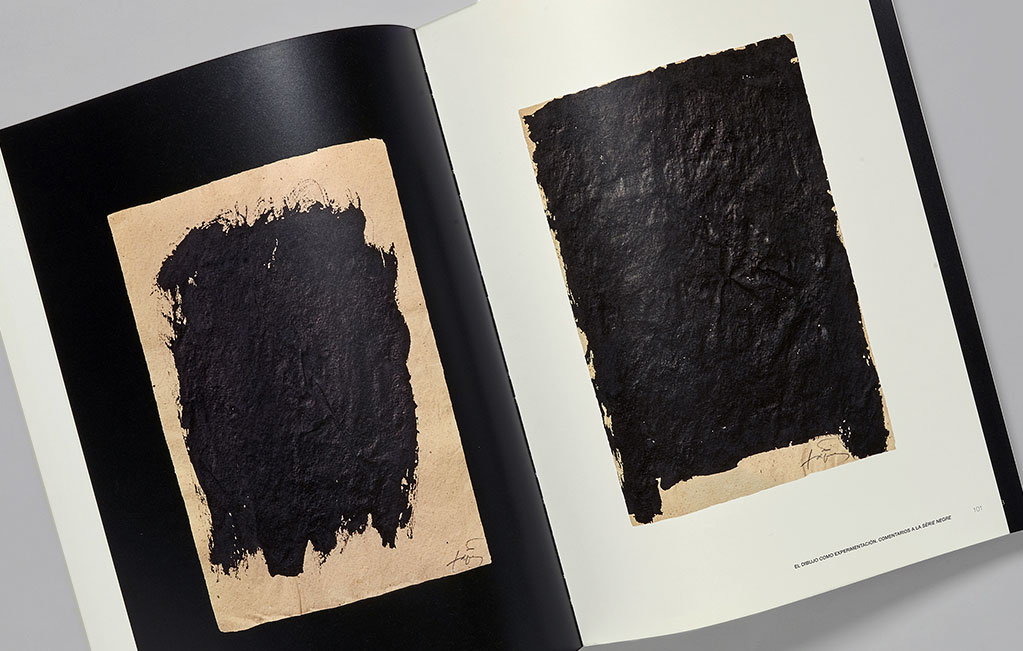
Sèrie negre n. IV, 1967. Sèrie negre n. V, 1967
Detail of the Book of Esdudios from the work of Sèrie Negre.
The Sèrie Negre falls into this category: it is a set of pieces that follow one after the other and are related to each other through a subtle interplay of repetitions and differences.
Light and darkness
A constant in Tàpies' work is the use of the colour black: the result of mixing all the colors. Black tends to have negative connotations in Western culture, but this has not always been the case. In fact, it was the first colour the Palaeolithic artists used to draw the outlines of animals. It was also widely used in ancient Egypt and classical Greece and Rome.
Later, artists that Tàpies admired, including Rembrandt, Velázquez, Zurbarán and Goya, made extensive use of dark shades in their palettes. And of course, it is also found in Chinese and Japanese painting and calligraphy.
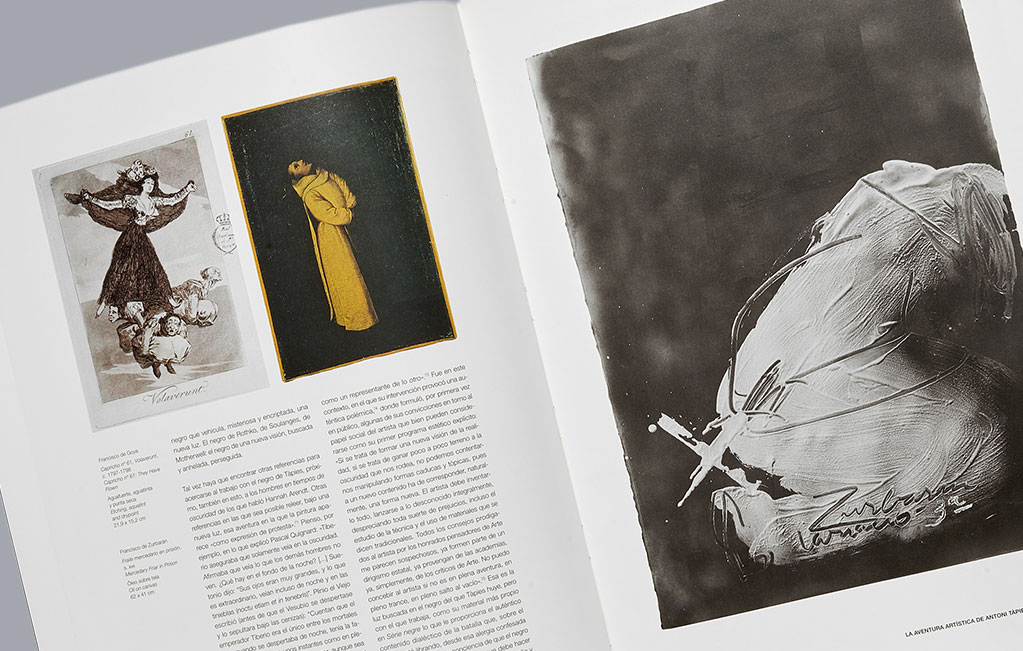
Francisco de Goya, Capricho nº 61, Volaverunt, c. 1797-1798.
Francisco de Zurbarán, Fraile mercedario en prisión, s. XVII.
Antoni Tàpies, 3ª Variació Zurbarán, 1981.
Detail of the Book of Esdudios from the work of Sèrie Negre.
Black is therefore a substantive element in the series, not a circumstantial one. It is the heaviest colour, capable of creating a dense volume and absorbing light to the extreme.
Matter and contrast
The choice of kraft paper, a simple material used as a wrapping, is linked to Tàpies' interest in breaking with established categories: “For me, drawing and its supports are inseparable”.
Through drawing and grattage, Tàpies discovered a technique based not on the brushstroke, but on writing and inscription which, like tattooing on the skin, are processes that create an indivisible connection.
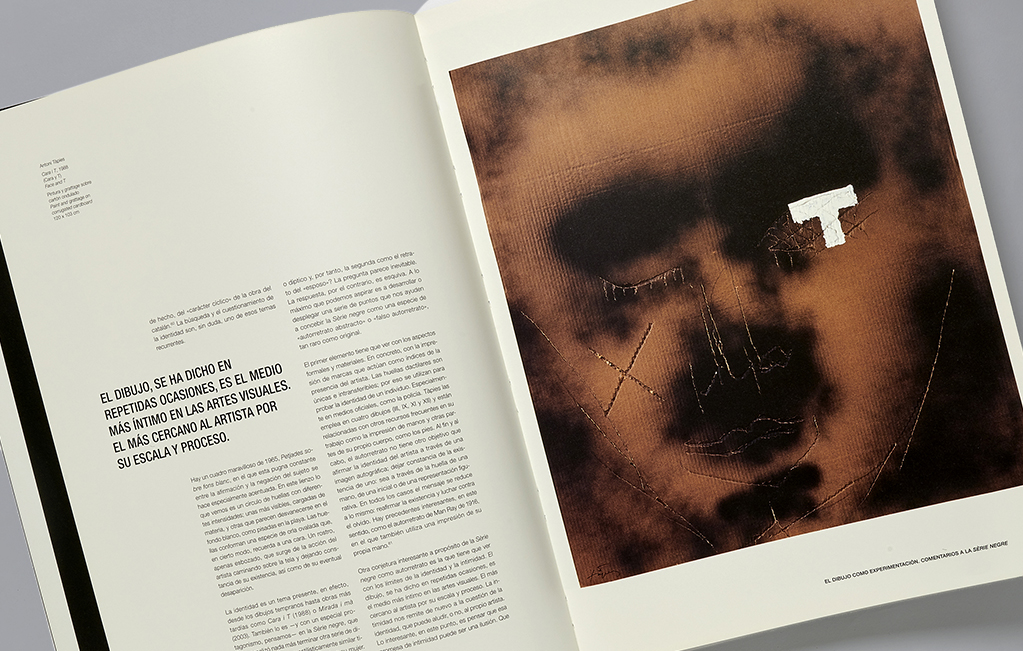
Cara i T, 1988, Painting and grattage on corrugated cardboard.
Detail of the Book of Esdudios from the work of Sèrie Negre.
In this series we see changing forms, almost like the frames of a film. The spatial structure is shaped through the dialogue between black and white. There is also a balance of opposites between the aggressive pencil work and the precise movement of the ink-soaked brush.
Medium and styles
Tàpies, like other artists of his generation, gave drawing a new status. It ceased to be a medium that was secondary to painting and infiltrated and radically transformed it. Drawing claimed its own value and autonomy at that time. It showed that it could be as powerful as any other means of visual expression.
In the Sèrie Negre we find strokes that include letters and signs, dialogues between light and shadow and abstract resources. In short, Antoni Tàpies knew how to extract his best discoveries from the areas of darkness, which he himself defined as “the light of dreams and of our inner world”.
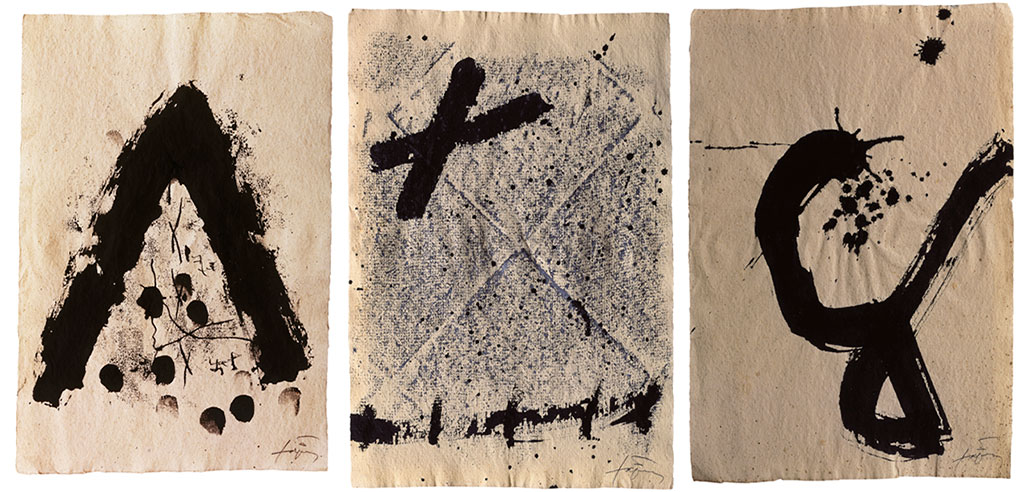 Sèrie negre n. III, 1967. Sèrie negre n. VI, 1967. Sèrie negre n. XV, 1967
Sèrie negre n. III, 1967. Sèrie negre n. VI, 1967. Sèrie negre n. XV, 1967
Detail of the Book of Esdudios from the work of Sèrie Negre.
Tàpies and ARTIKA
To celebrate the 50th anniversary of the creation of the series, ARTIKA launched a special edition of Sèrie Negre. The existence of a lost drawing was discovered during the research process, and the lost drawing is incorporated into this art book for the first time.
Our limited edition of the Sèrie Negre includes the fifteen original drawings, printed on handmade paper and accompanied by a study book: it is a unique work that makes it possible to see the series as the artist conceived it.
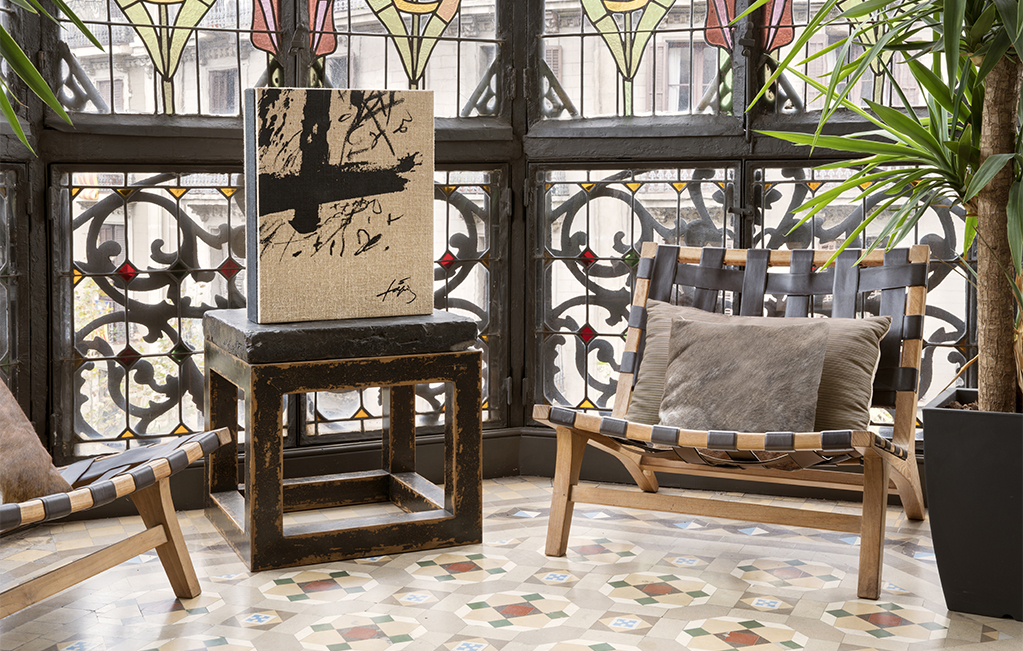
ARTIKA'S NEWS
